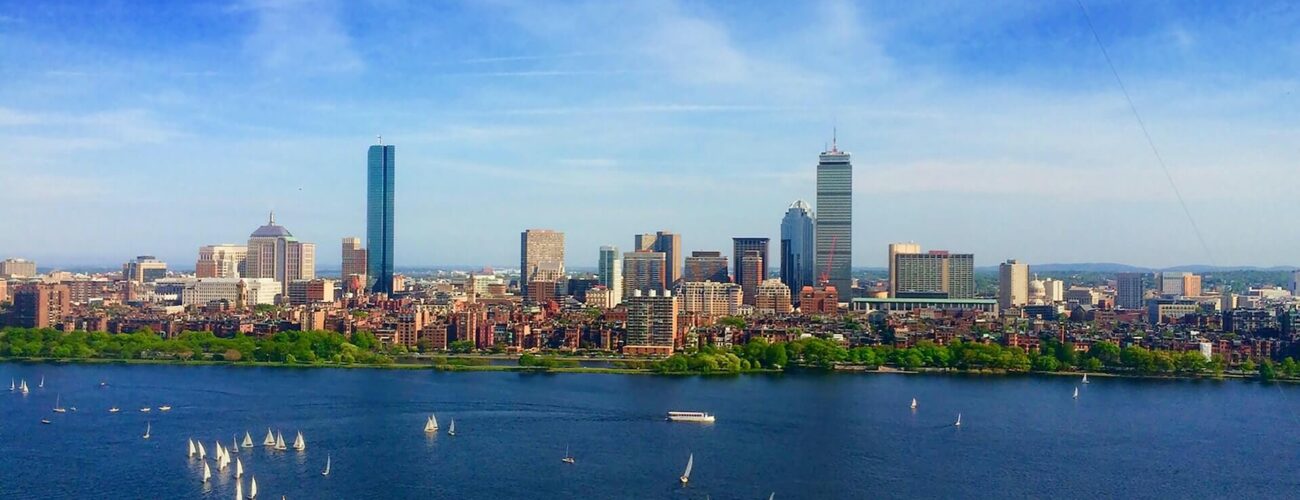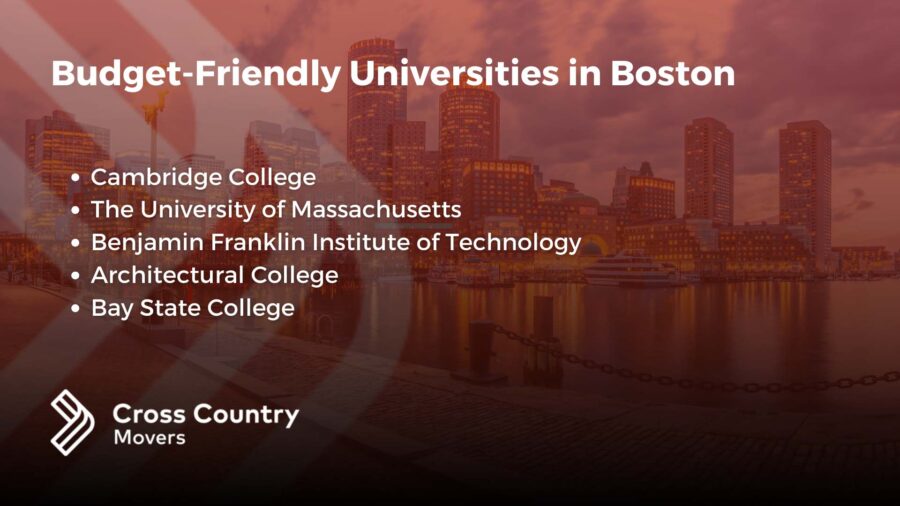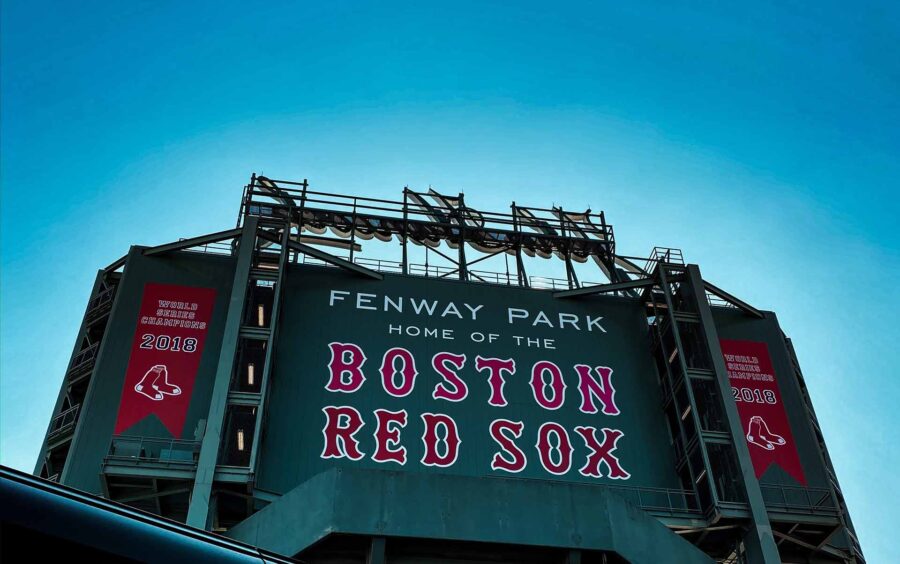

Moving to the Capital of Massachusetts? Here’s a Local’s Guide to Cost of Living in Boston
Posted in City Guides on June 5, 2022
Moving to one of the most economically powerful cities in the world comes with a lot of perks. However, settling in a hotspot such as the capital of Massachusetts comes with a price. That’s why before packing up the bags, go over the cost of living in Boston. Knowing how much money you’ll need to live here will make the adjustment process that much easier.
Knowing the Cost of Living in Boston Will Make Moving Across the Country Easy
When preparing for the move, you’ll have a lot on your plate – from finding efficient cross-country movers to creating a to-do list and sticking to it. There will be a lot of unknowns thrown at you. You’ll have to look for a job and research some of the best neighborhoods. And on top of that, you’ll have to think about the moving budget.
This budget shouldn’t only entail the cost of hiring a cross-country moving services, but it should also point out the amount of money you’ll need the first month or two in the Hub (just until you settle in and start getting a regular paycheck). Furthermore, this is especially important if you are relocating without a job because you’ll need to know where every saved-up dollar is spent.
With a move-out list in one hand and a detailed budget report in the other, moving to Boston will be as stress-free as possible. That being said, don’t embark on this adventure without considering finances first. That would be a huge relocation mistake.

Before the Move, Compare the Average Cost of Living in Boston, MA, to Other Cities
Even though you have some completely valid reasons to move, it is normal to feel a bit of doubt about the whole thing. That’s why, if you are still on the fence about settling in the Hub, comparing it to other cities will probably give you peace of mind. So, no matter if you are relocating from a state over or from the West Coast to the east, the best way to get the full picture about the amount of money you’ll need is to put the expenses on the paper.
To make the whole thing a bit easier for you, we used the data from the website Numbeo to compare the average prices of transportation, dining out, and childcare in the Hub, Los Angeles, Seattle, and New York. The table below will show you where these day-to-day expenses are the highest.
| Location | Transportation | Dining Out (Meal, Inexpensive Restaurant) | Childcare (Preschool Monthly) |
|---|---|---|---|
| Boston | $90 | $20 | $1.980 |
| Los Angeles | $100 | $20 | $1,270 |
| Seattle | $18 | $97 | $1,770 |
| New York City | $25 | $130 | $2,250 |
Boston Living Costs Are Affected by Housing Prices
No matter if you are moving from a house to an apartment or vice versa, you’ll still need to think about making rent or mortgage payments. Meaning you cannot escape housing expenses. So, it is only logical that you are wondering how expensive is it to live in Boston when housing is included in the calculation?
The amount of money needed will depend on a few things. If you are planning on becoming a homeowner, like almost 35% of Bostonians are, know that the median home value is $532,700. It is a steep price to pay for a property, but it is worth the money. After all, residents are boasting about a good variety of homes, available parking, and the quality of exterior and interior of residences.
On the other hand, if you want to be like 65% of Bostonians that are renting their homes, you should know that the median rent is $1,620. However, that amount will vary depending on the location. If you want to save up, there are a few very budget-friendly spots around the metropolis you can settle in.
There Are Affordable Neighborhoods You Can Settle In When Moving Cross Country
The Hub is split into 23 official neighborhoods, but the metropolitan area counts many more suburbs and towns. They are well connected with the Downtown, so no matter where you live, you’ll be able to reach the city center in no time.
With that in mind, you can start house hunting all around the metropolitan area without worrying about being too far away from the hustle and bustle of the city. You can actually settle in a good location without breaking the bank, and here are some of the most affordable neighborhoods:
- Hyde Park is a diverse and family-oriented spot, offering plenty of open spaces and parks. It is great for those looking to rent an affordable place. Settling here won’t put a huge dent in your savings with a median monthly rent of $1,405 (courtesy of the website Niche).
- Roslindale is a place for people looking for a tight-knit community that fosters the feeling of togetherness. Here you’ll find locally-led initiatives such as block parties and bake sales. It is also quite affordable, with a median rent of $1,600 a month.
- Allston-Brighton is one of the safest neighborhoods in the city, while proximity to a few colleges gives it a party vibe. Since it is like one big college campus, it mostly attracts a younger crowd looking to rent affordable apartments. If you fit the bill, know that the median rent here is $$1,970.
- Danvers is a true suburb of the Hub. And as you may know, the cost of living in the Boston suburbs is a bit more affordable than in the city center. This small and tight-knit community is no different. It has a vibe that would be ideal for people that want to move to a small town. With great schools and plenty of outdoor activities, it is overall a good spot to call home. And it also helps that it is on the cheaper side, with a median rent of $1,400.
- Wakefield offers a perfect escape from all the commotion and traffic of a metropolis. Even though it has a sleepy town vibe, Wakefield is quite a buzzing location. There are live jazz music performances, book clubs, as well as various water-related activities at Quannapowitt and Crystal Lakes. Also, settling here would be great for your budget since the median rent is $1,370.
There is much information to go through. But if you want to learn a bit more about Roslindale and its residents, check out the video below.
Utilities and Groceries Play a Major Role in Boston Cost of Living
Whatever accommodation you opt for, some expenses you cannot escape from. Basic utilities such as electricity, water, heating, and garbage will always be monthly expenses. In the Hub, the monthly bill for the utilities in the 915 sq ft apartment is $175 on average.
Another thing to think about is food. Suppose you’ve packed all kitchen items and brought them over to your new home. It would be a shame not to put them to good use. To do so, you should channel the inner Gordon Ramsay (or Julia Child if she is more up to your speed) and get to cooking. However, trying out recipes and mixing ingredients means you have to hit the supermarket and get groceries.
And since not all things come for free, you should create a monthly grocery budget and avoid spending all of your money on overpriced foods. Luckily, most of the groceries in the stores are within the average US price range. That’s how you can buy eggs for $2.44, apples for $1.74, and chicken filets for $4.66.
The amount of money you’ll spend on groceries will depend on your lifestyle and the type of food you like to eat. According to Numbeo, people who prefer western food types will spend around $390 a month for groceries, while those who like Asian food types will spend $295.
We made things a bit easier for those who want to save up. By using the Consumers’ Checkbook report, we created a table showcasing the most affordable supermarkets to shop in.
| Supermarket | Amount of Money the Family of Four Would Spend |
|---|---|
| Price Rite | $154 |
| Market Basket | $164 |
| Walmart | $166 |
| Trader Joe’s | $166 |
| Hannaford | $182 |
Eating Out Can Affect Your Overall Expenses
With about 3,000 restaurants, The Hub is a paradise for people that like to dine out. There are small chef-owned spots, high-class restaurants, and places that serve local products. If you like to explore different cuisines, be prepared to have a few bucks knocked out of your pocket.
For starters, a meal in an inexpensive restaurant will cost you around $20. However, if you are relocating because of love and want to take out your partner and share a meal in a mid-range restaurant, you’ll need around $80.

There Are Many Low-Priced Transportation Options in the Hub
Pack up comfy shoes when relocating to the Hub because the area is very walkable. Because of it, you might hear people call it “The Walking City.” Wide and well-lit sidewalks make it pretty safe for all pedestrians.
However, if walking around is not your preferred way of commuting, don’t worry – the city has a highly functioning public transportation system known as MBTA. Because of it, all downtown areas are accessible by trolley, bus, train, or water transportation.
Using public transportation will not only help you save the environment one ride at a time, but it will also save you from going broke. A one-way ticket for local transport is $2.40, while a monthly pass is around $90, which beats paying for gas.
Driving a Car Can Increase the Overall Cost of Living in Boston
Are you hiring long-distance movers to ship your car to MA? Because even if public transportation is affordable, there are many benefits to shipping a vehicle. If you want to feel like a true local, owning a car is more than mandatory. After all, more than 66% of Bostonians own at least one four-wheeler.
Being a car owner, however, comes with a price. You have to think not only about the gas prices, which are currently at $3.52 for a gallon. But you also have to consider parking, which will knock $300 out of your pocket every month.

Education in the Hub Is Worth the Money
The metropolitan area of the Hub is worldly known for its educational institutions. Here we don’t only talk about universities but also primary, secondary, and high schools. It is all about gaining a high-quality education.
That being said, according to data provided by the local government, the city’s Public School District counts 117 educational institutions. When broken down into specific levels, there are 75 preschools, 82 elementary, 47 middle, and 28 high schools around the metropolis. Since these are all public institutions, they are funded through taxes and federal grants.
However, if you wish to send your kid to a private educational institution, be prepared to pay a notable amount of money. According to the website PrivateSchoolsReview, private preschool tuition is on average $11,690 a year. Elementary education is around $20,450, while enrolling children into private high school will knock $35,220 out of your wallet each year.
Finally, if you are long-distance moving alone in pursuit of higher education, you can’t go wrong when settling here. The Hub is considered one of the best places for students in the whole US. That’s not only because MIT and Harvard are located here, but because there are plenty of other educational institutions you can gain knowledge in.
There Are Some Budget-Friendly Schools You Can Consider
Around 152,000 students attend one of 35 colleges or universities in the metropolis. There is probably some tuition for everyone’s pocket. So, if you are not on scholarship and are looking for educational opportunities in the Hub, check out some of these cheapest universities:
- Cambridge College is a non-profit institution targeting students that are getting their education later in life. That’s why you can partake in ambitious online programs. Cambridge College tuition is the same for both in and out-of-state students, and it is $5,388 per semester.
- The University of Massachusetts is the only public university in the metropolitan area, and its programs range from bachelor’s to doctorates. In-state students pay tuition of $7,300 while out-of-state ones pay $17,540.
- Benjamin Franklin Institute of Technology is a private college focused on engineering and new tech. It is a small institution counting around 500 students, allowing more personalized learning. To become a student here, you’ll need to pay tuition of $9,100.
- Architectural College is focused on space design careers, and it offers undergraduate and graduate degrees to its students. Tuition here is $12,880 for both in and out-of-state students.
- Bay State College focuses its studies on healthcare, tech, and business. It has less than 15 programs, but it offers day, evening, and online classes. Tuition for this prestigious institution is $28,500 for all students.
Additionally, if you are relocating with kids and prefer private schools over public ones, plenty of budget-friendly options are available. For example, one of the lowest tuition rates when it comes to private schools has Cristo Rey High School. If you enroll kids here, expect to pay a tuition of $2,700.

Miscellaneous Expenses Can Also Influence the Cost of Living in Boston Massachusetts
Perks of becoming Bostonian start with the vast entertainment options the metropolis has to offer. And the first one is America’s greatest pastime – SPORT! The Hub has teams in four major professional sports leagues, and they have won 39 championships in these leagues earning the nickname “Title Town, USA .” The sports fans settling in the city will more than love it here. Whether you are cheering for the Patriots, Red Sox, Celtics, or Bruins, there will always be a game you can go to.
However, all of that fun comes with a price. Catching a Celtics game will set you back for at least $36, while enjoying a game at Fenway Park and cheering for the Sox will set you back for $27. You can also watch Patriots for the average price of $120. At the same time, Bruins ticket prices start around $42.
Also, if you like to work out, know that an average gym membership is $41 a month, while for an annual pass, you will need to cough up $490. However, there are ways to trim the expenses. Just go to some of the more affordable gyms in the metropolis, such as Planet Fitness ($20 a month,) Gold’s Gym ($25,) and LA Fitness ($30).
Those who don’t like sports can enjoy visiting many museums (many don’t charge admission). You can also catch a movie for around $13.50 or see a play on Broadway, where tickets can be anywhere between $20 and $145. There are also many local parks great for outdoor activities, so you won’t have to spend all the money on entertainment.

The Average Salaries Are High Enough for Bostonians to Live Comfortably
Money makes the world go round, right? Without it, you cannot get that fancy watch or get season Red Sox tickets. Or, you know, pay utilities and food. So the question imposes itself – What salary do you need to live in Boston?
The living wage in Boston won’t be the same for everybody. The minimum income necessary to meet your basic needs will depend on the number of grown-up people in your household, as well as the number of kids you have.
According to the LivingWage website, one working adult should have an annual income of around $44,225. On the other hand, a household with two working adults and two kids should have an annual income of $125,420.
Since the Hub is home to huge international companies such as Dell Technologies, Converse, and Wellington Management Company, finding a prosperous job won’t be that difficult. For example, here are some of the best paid occupational areas:
- Management – annual salary of $139,750
- Legal – annual salary of $123,425
- Computer and Mathematical – annual salary $110,300.

Becoming a Bostonian Is Worth Every Cent Spent
American writer Thomas Gold Appleton wrote “Boston is a state of mind,” and if you want to become a part of it, embracing all it has to offer is the first step. From the rich and colorful history that starts at the beginning of our nation to impressive and world-famous universities, the city buzzes with all kinds of opportunities. So, no matter who you are, what you need, and what you are looking for, settling here will be worth all the trouble. Even if that means getting used to higher than expected costs.






